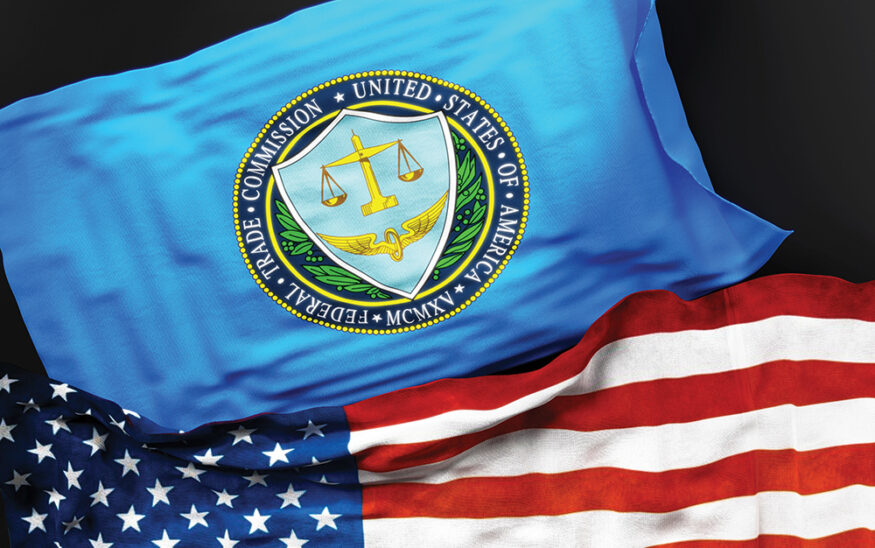VMM Managing Partner Joseph Milizio, head of the firm's Business and Transactional practice group, and Katherin Valdez-Lazo, a law clerk pending bar admission, wrote an article in Long Island Business News (LIBN) explaining the new Federal Trade Commission ban on noncompete agreements and its implications for employers and employees.
The article can be found in the print edition today and online here and below.

FTC noncompete bans: What does this mean for employers/employees?
Joseph Milizio And Katherin Valdez-Lazo
On April 23, the Federal Trade Commission passed a ban on noncompete agreements for almost all types of jobs, with major implications for employers and employees in both the private and public sectors.
Historically, noncompete clauses have been included in employment agreements to prevent workers from joining or launching a rival business, especially if using information and skills gained during their employment.
Regulation of noncompetes was left to the states, with varying degrees of strictness. Alabama, for example, limited them only in narrow circumstances, while California has outright banned them since 1872. New York has allowed them unless they impose “undue hardship” on the employee.
In July 2021, President Biden issued an executive order imposing significant federal limitations on all noncompetes, arguing they “hinder the ability of employees to seek higher wages, better benefits, and working conditions by changing employers.”
Following, in Jan. 2023, the FTC issued a proposal to ban noncompetes. After receiving a whopping 26,000-plus public comments, it announced last month its final rule, banning noncompete agreements nationwide.
What employers need to know
The federal ban on noncompetes isn’t law yet; it will become effective 120 days after publication in the Federal Register, expected by Sept. 4, 2024. But once it is, it will create a new and rather uncertain legal landscape for employers and employees.
Most employers are subject to the ban, except for industries not subject to the Federal Trade Commission Act. This includes certain financial institutions like banks and credit unions, some nonprofit organizations, and airlines.
The new law covers employees, independent contractors, interns, volunteers and sole proprietors who provide a service.
Employers must give notice to employees who already signed noncompetes that they are no longer enforceable. For senior executives (in a “policy-making position” and earning more than $151,164 a year), existing noncompetes will remain in force, but no new ones may be used.
Importantly, non-disclosure agreements are also no longer legal if they prohibit or penalize an employee from seeking or accepting other employment.
Also of note, if a violation of a noncompete by an employee occurs before the ban becomes effective, even if discovered later, it is still enforceable and the employer may still have a legal cause of action. However, employers who believe a current noncompete is being violated are advised to seek legal advice before the ban goes into effect.
Business owners should also be aware that a narrow exception to the ban allows noncompete agreements in relation to a bona fide sale of their business, between them and the buyers.
This is an important tool for any potential purchaser of a business, as it prohibits a seller from competing with the business post-closing. It also allows the buyer and seller to allocate gains on the sale by attributing a portion of the purchase price to the noncompete (however this only holds to bona fide sales) .
Standing questions
The language of the FTC’s final rule leaves some questions unanswered, which will likely be clarified in the coming months.
For one, an exception is “the very few [noncompetes] that are absolutely necessary to protect a narrowly defined category of trade secrets.” But it remains to be seen if and how the law will allow for protection of sensitive information that isn’t within the “narrowly defined category,” like prospective client lists, competitive strategies, and other non-proprietary data.
It’s also unclear whether the ban is actually within the FTC’s authority. The U.S. Chamber of Commerce has already filed a lawsuit challenging its legality, and it’s likely that it will face further legal challenges by businesses and organizations.
In principle, once the ban goes into effect, the majority of noncompete agreements will become invalid, and the FTC could force employers to rescind them. But, due to the legal challenges currently facing the final rule, the applicability and penalties are still subject to change. Businesses should ensure their legal counsel keeps them abreast of developments.
Joseph Milizio is the managing partner of Vishnick McGovern Milizio LLP, where he heads the business & transactional division. He can be reached at jmilizio@vmmlegal.com.
Katherin Valdez-Lazo is a law clerk pending bar admission in Vishnick McGovern Milizio LLP’s business & transactional division. She can be reached at kvaldez-lazo@vmmlegal.com.


